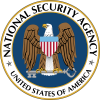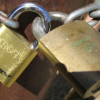Face ID Technology Gets Federal Funding
A company that touts its facial identification system as a powerful new tool for security and crime fighting has received millions of dollars in federal funding to improve its surveillance technology for military and intelligence uses, according to documents and interviews.
Visionics Corp. of Jersey City, N.J., specializes in systems that use cameras linked to computers to scan faces and automatically compare them with electronic photographs stored in databases.
The company gained widespread attention after its FaceIt system was installed by Tampa police to match images caught by dozens of cameras in an entertainment district against digital mug shots of known criminals.
But FaceIt is also being employed by a host of other government agencies -- including the National Security Agency, the Defense Department, the Justice Department and the Israeli Defense Ministry, documents and interviews show.
Privacy advocates and civil libertarians who criticized Tampa's program as intrusive said Visionics' ties to military and intelligence agencies add fuel to the debate about the proper use of technologies that key to facial features, fingerprints, retinal patterns in the eye and other immutable traits.
"America now faces a choice about how far we want to go down the road to being a surveillance society," said Jeffrey Rosen, a law professor at George Washington University and author of a book on privacy.
Marc Rotenberg, executive director of the Electronic Privacy Information Center, said the government's role in developing commercially available surveillance tools is alarming.
"Behind the scenes is a multimillion-dollar research effort by the Defense Department to "put in place technologies that would have the ability to routinely monitor citizens across the nation," said Rotenberg.
FaceIt and similar systems have broad applications. Casinos are finding them useful for scanning their properties for known cheats. One airport is using FaceIt to search for terrorists. Banks are using facial recognition to help identify ATM users, eliminating the need for passwords or PINs. In the District, motor vehicle officials are even installing FaceIt software this summer to verify the identities of driver's license applicants by matching individuals' current and past photographs. Similar software developed by a competitor was used during the Super Bowl this year to scan the crowds for known criminals.
The potential did not escape the notice of several U.S. government agencies. In November, as part of an anti-terrorism initiative, the Defense Advanced Research Projects Agency granted the company a $2 million contract to help in creating a system that will identify "humans, alone or in groups, from great distances" and in the dark, according to documents describing the Human ID at a Distance program.
The "Human ID program will provide the technologies that will significantly enhance the protection of U.S. Forces, at home and abroad," such as outside embassies or military facilities, the agency documents said.
Over the past three years, Visionics received about $800,000 as part of a project managed by the Justice Department to develop a way to automatically search Internet pornography sites for images of missing and exploited children.
West Virginia officials are now using the software to search for children "24 hours a day, seven days a week," so far without success, according to an official involved in the project.
Meanwhile, the project has expanded to involve real-world surveillance by police and drug-enforcement agencies in South Florida. Broward County authorities can match faces against a database of 230,000 digital mug shots, according to an official involved in the project. The U.S. Marshals Service has contributed 20,000 photos, the program manager said.
Rep. Alan B. Mollohan (D-W.Va.), who secured funding for the initiative, said in a statement that "the potential is tremendous -- and one measure is the growing interest in applying this technology to achieve other law-enforcement missions."
Visionics also does business with governments abroad. Israeli officials have used FaceIt software to "manage the flow of individuals entering and exiting the Gaza Strip," according to the company's promotional material. Mexico recently licensed FaceIt software to scan its databases for duplicate voter registrations.
In Britain, police in the London Borough of Newham linked FaceIt software and some 300 cameras two years ago to search for known criminals. Authorities there credit the system with a 34 percent drop in crime. Birmingham City Centre began a similar initiative earlier this year.
The FaceIt system creates a digital map of an individual's face, translating the contours into mathematical formulas that are nearly as distinguishing as a fingerprint. FaceIt software can scan a stream of images from a crowd for individual faces and, using the mathematical formula, match them against images in a database.
Under optimal conditions, the company said, the error rate for matches is less than 1 percent. The company said its software is able to account for changes in lighting, facial hair and aging. The accuracy, however, depends on the clarity of both the photos in a database and the images being captured and searched, so that gloomy conditions could lower the accuracy. Match rates also could fall if the face is recorded at an odd angle.
Visionics promotes its products as a technological leap beyond passwords and personal identification numbers for security and authentication. The company said its FaceIt software can help fight terrorism, identity theft and other kinds of crimes.
Keflavik International Airport in Iceland announced in June that it is adding FaceIt surveillance to its close-circuit television system as a security measure. Motor vehicle officials in West Virginia, working with Polaroid Corp., use facial recognition software from Visionics to scan databases of driver photos for duplicates and frauds.
The company said FaceIt also can also improve service for special customers, such as frequent fliers who want to board a plane early.
"FaceIt recognizes faces at a distance, in a crowd and at a glance," the company's literature said. "These could be shoplifters, known terrorists or criminals, VIP guests or customers, expected visitors or any individuals generally classified as friends or foes."
Visionics, a publicly traded company, is part of an emerging biometric industry, with a hundred or more companies developing technology that relies on such human identifiers as patterns on the retina, hand prints or voice patterns, according to an industry analyst.
Visionics competitors Viisage Technology Inc. and its partner, Lau Technologies Inc., also receives "several million a year" from defense and other agencies, according to Viisage President Thomas J. Colatosti. That includes work with the NSA. "We have worked with them, but only on projects and pilots," he said.
To expand its services, Visionics in February merged with Digital Biometrics Inc., a Minnesota company that specializes in digital fingerprint scanning systems used by law enforcement and government agencies, such as the armed forces and INS, a Visionics official said.
Privacy advocates and civil libertarians worry that FaceIt and a growing number of similar systems will be used by government agencies to track and catalogue the activity of innocent citizens, possibly for political reasons.
House Majority Leader Richard K. Armey (R-Tex.), said the "public deserves to know to what extent their government is responsible for deploying this technology." He has called for a General Accounting Office report on federal surveillance spending.
"The most serious threats to our freedom often advance in small steps. Face recognition systems may one day provide significant benefits in military applications," Armey said. "We are taking a step in the wrong direction if we allow this powerful technology to be turned against citizens who have done no wrong."
Visionics does not hide the fact that it has ties to government agencies. In November, for example, the company put out a press release announcing its contract for the Defense Department's Human ID project.
Visionics President Joseph Atick said his company is sensitive to privacy concerns and would support legislation to prevent the misuse of his products. Because of privacy concerns, images gathered by the system in Tampa are erased if there is no match.
"In keeping with our belief that our leadership must extend beyond technology," Atick said in a prepared statement, "Visionics has always taken an active role in articulating the most appropriate and ethical ways for society to gain benefits from our technology and to ensure that the technology cannot be misused."









































































